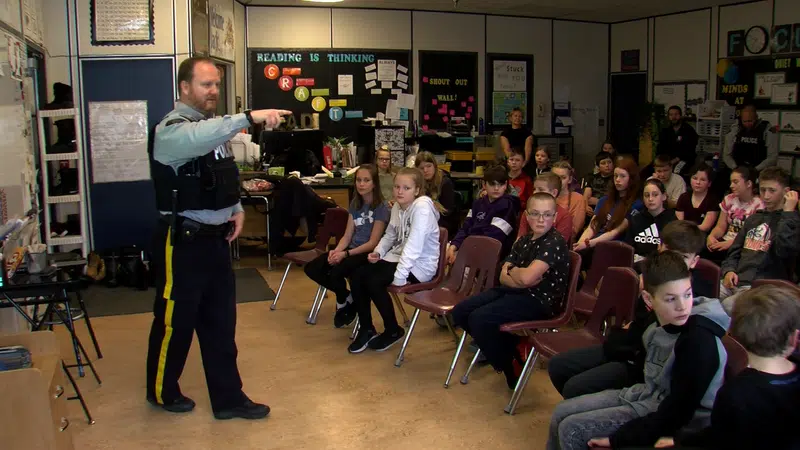
School district backs RCMP involvement in Project EDGE
KAMLOOPS — Every year, the RCMP and the Kamloops Blazers visit Grade 6 classrooms in the city. Their message? Make smart choices in life, and avoid going down the path of addiction.
It follows an annual trip to the Downtown Eastside, where players and coaches are escorted by police officers to see what the conditions are like. Their observations are then relayed to the students.
The hour-long presentation outlines what a drug is, how it can affect your body, and chronicles the stories of people who have wound up on the Downtown Eastside.


